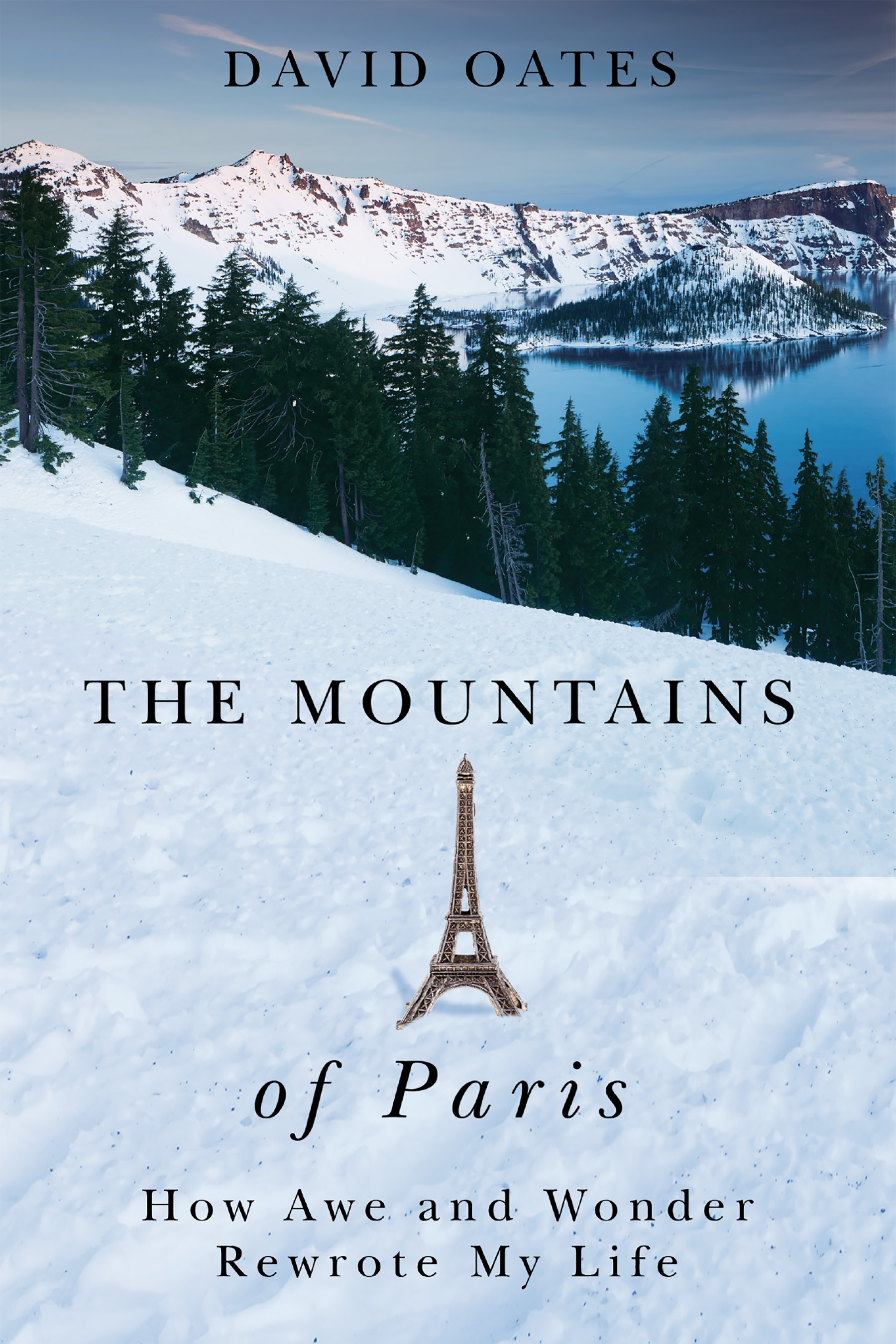 David Oates is a writer and teacher currently based in Portland, Oregon. He’s the author of two books of poetry and five works of nonfiction, including his most recent memoir, The Mountains of Paris. He was a Kittredge Distinguished Visiting Writer at the University of Montana and is founder and general editor of Kelson Books in Portland, Oregon. Here, he introduces an excerpt from The Mountains of Paris.
David Oates is a writer and teacher currently based in Portland, Oregon. He’s the author of two books of poetry and five works of nonfiction, including his most recent memoir, The Mountains of Paris. He was a Kittredge Distinguished Visiting Writer at the University of Montana and is founder and general editor of Kelson Books in Portland, Oregon. Here, he introduces an excerpt from The Mountains of Paris.
When I lucked into a four-month arts residency in the heart of Paris, I wondered what I would make of it. This little extract is one answer. And it also points toward the wider exploration my Paris sojourn inspired, pursuing questions that had dogged me my whole life. Looking up into the starry night sky, or being simultaneously diminished and exalted before a sunset or the ocean’s roaring chaos . . . What is that big big feeling?
It seems half my life has been focused on hiking, climbing, getting beautifully lost in deep forest or on remote peaks. But the other half has been spent in very different obsessions: the music of Bach, a Vermeer painting, a poem that won’t let go of me. In all these terrains the same unanswerable lurked. What is this feeling? What is this tremendousness?
- David Oates
It appears I’ve come to Paris in order to go to church.
It’s a strange choice. Here I am in the world capital of culture, intellect, the chic of smartness. I’m living and working in an artist’s and writer’s residency: the Cité des arts international. All around me are those four hundred museums that Parisians like to mention. I try to tally them: museums for any taste, any period; museums of armor and weapons, hunting rifles and stuffed game, gizmos and technology; New Guinean fetishes, eroticism, medicine, Freemasonry; Balzac, Chopin, Picasso, in fact painters and writers without end; grandiose museums like Musée du l’Homme (anthropology) or museums that specialize in obsessions (locks and keys, smoking, playing cards, the thirties). New art is exhibited continually—big Palais, little Palais, Tokyo Palais. Of course, there is canonical painting and sculpture over at the Louvre and a feast of nineteenth-century kitsch across the river at the Musée D’Orsay, housed under its coffered nineteenth-century railway dome. And, within the tubed frightfulness of the Pompidou, all those seething moderns. There is cinema everywhere and photography shows big and little and edgy gallery-like little collections (Maison Rouge!)…and the insurmountable list of historic buildings, churches, parks.
And so much more. Isn’t all that the reason a guy like me comes to Paris?
There’s also the Paris of indulgence. Of shopping, which I simply refuse. Of food, if you can afford it. And of sex, ditto. Didn’t people used to come to Paris to have “a naughty weekend,” as Auden said? It must still be around here somewhere. But no . . .
Somehow I have managed to find the Puritan’s version of the naughty weekend. Here I am, sneaking off to church.
—
To speak plainly, I come for the organ. A particular organ, in a particular church. That was, and is, the great motive. It’s what gives me pleasure. And pleasure is really what’s behind everything, high art or base pursuit. So all this church-going, I might ask myself—is it fun? Well, not exactly. Satisfying?: yes. That’s what I have to explain.
How to get at it?
The lostness, off and on, for much of my life, despite massive good luck and frequent happiness. There was an emptiness and ways of filling it that were not always sordid. No, not always. But under the strange furor of living, and under the lostness, always there was something deeper yet. Something delicious. And possible.
I felt it. It could not be spoken.
Whose story doesn’t start in lostness, and perhaps end there too, in the emptied corpse? Pride, vanity, futility. It’s a lot of what we share, after all. Emptiness in its different forms has been tearing up the world for a long time. It is doing so now, accelerating even as we breathe and read and speak, our emptiness at work unmaking the air, burning up the globe, prying apart the ecosystems. Yet on we go, as if unable to imagine any change. We are that null, that empty.
Yet something there was that said: the last word of this tale is not vanity.
 David Oates is a writer and teacher currently based in Portland, Oregon. He’s the author of two books of poetry and five works of nonfiction, including his most recent memoir, The Mountains of Paris. He was a Kittredge Distinguished Visiting Writer at the University of Montana and is founder and general editor of Kelson Books in Portland, Oregon. Here, he introduces an excerpt from The Mountains of Paris.
David Oates is a writer and teacher currently based in Portland, Oregon. He’s the author of two books of poetry and five works of nonfiction, including his most recent memoir, The Mountains of Paris. He was a Kittredge Distinguished Visiting Writer at the University of Montana and is founder and general editor of Kelson Books in Portland, Oregon. Here, he introduces an excerpt from The Mountains of Paris. 